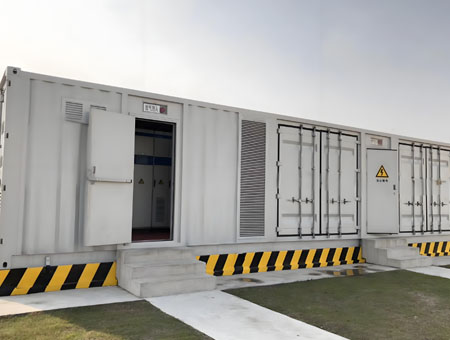Share to
The location requirements and safety maintenance of
user side energy storage are crucial for the operation and use of energy storage systems. The site selection plan needs to comprehensively consider multiple factors. During the site selection process, sufficient geological surveys, environmental assessments, and other work are required to ensure the safety, economic, and environmental performance of the power station. In order to ensure the stable operation of user side energy storage, it is necessary to evaluate and control the stability of the power system. By regularly monitoring and maintaining the performance of energy storage equipment, the stable operation and lifespan of the equipment are ensured. The following are the site selection requirements for user side energy storage and the importance of safety maintenance:
1、 Site selection requirements:
1. Electricity demand: Site selection should consider the characteristics of user electricity demand and peak valley differences to ensure that the energy storage system can meet the needs of users. It is recommended to choose areas close to load centers or with high energy demand to reduce the length and losses of transmission lines.
2. Space suitability: The site selection should consider the installation space and layout of energy storage equipment. When setting up battery equipment indoors, it should meet the fire, explosion, and ventilation requirements of the battery. The user side energy storage devices should strengthen integration, achieve functional integration, and share resource information to ensure the stability and security of the devices.
3. Safety considerations: Site selection should be in areas with flat terrain, stable geology, and no natural disaster risks such as landslides. At the same time, factors such as groundwater level and soil type should be considered, and areas susceptible to disasters such as floods and earthquakes should be avoided. The construction of energy storage power stations and structures should have a safe fire prevention distance. To ensure the foundation stability and equipment safety of the power station.
4. Convenience of transportation and access: The construction materials and equipment for energy storage on the user side need to be transported to the site, so it is necessary to choose an area with convenient transportation. The site selection should consider the convenience of equipment transportation and access for daily maintenance and management. At the same time, local traffic conditions, road conditions, and other factors should be considered to ensure the safety and efficiency of transportation.
2、 The importance of safety maintenance:
1. Accident prevention: Regular maintenance and inspection of energy storage equipment to prevent equipment failures and accidents, ensuring safe and stable operation of the system. For example, regularly checking the battery condition of energy storage devices to ensure battery safety and normal performance.
2. Improving efficiency: Timely maintenance can ensure that equipment is in optimal condition and improve the efficiency and performance of energy storage systems. For example, timely cleaning and maintenance of equipment can reduce energy loss and efficiency decline.
3. Increase lifespan: Regular maintenance can extend the service life of equipment, reduce maintenance costs, and improve the economy and reliability of equipment. For example, timely replacement of aging and damaged components to ensure the normal operation and safe use of the equipment.
4. Environmental protection: The construction and operation of energy storage power stations may have an impact on the local environment, so regions that meet national and local environmental protection requirements should be selected to minimize the impact on the ecological environment. Maintenance work should comply with environmental protection requirements to avoid causing environmental pollution and safety hazards. Necessary environmental measures should be taken, such as properly handling discarded and expired energy storage devices such as batteries, to ensure that they do not have negative impacts on the environment and human health.
The site selection requirements for user side energy storage include power demand, spatial suitability, safety considerations, and convenient transportation access. The importance of safety maintenance is mainly reflected in preventing accidents, improving efficiency, increasing equipment life, and environmental protection. Users should strictly follow relevant requirements and standards when selecting the location of energy storage equipment and conducting safety maintenance to ensure the safe and stable operation of the energy storage system, improve the reliability and service life of the system.

